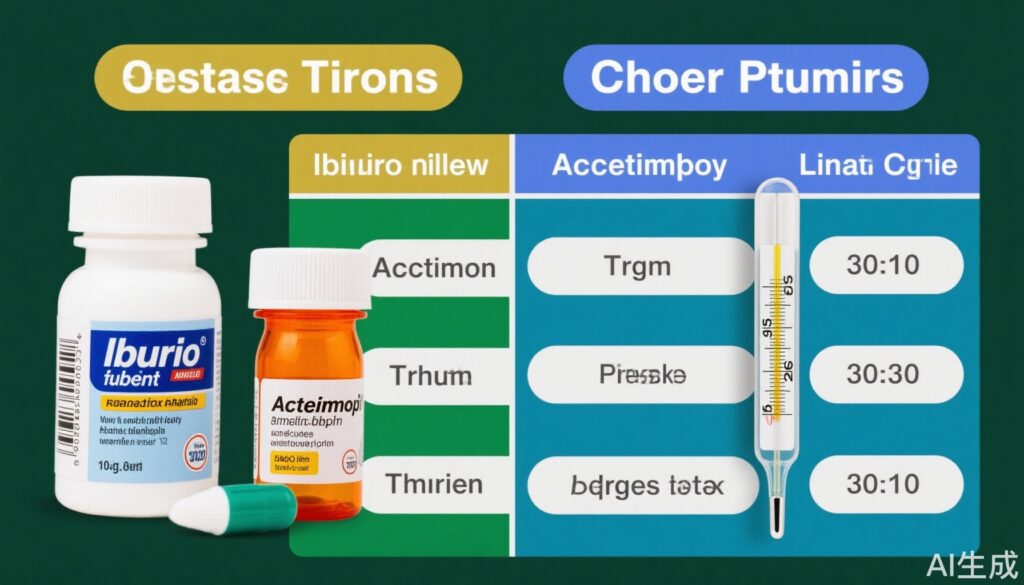Background
Fever is a common symptom experienced by many during infections such as the flu, common cold, or even COVID-19. When faced with a rising temperature, the natural reaction often involves seeking relief through over-the-counter fever reducers. Two widely used medications—ibuprofen and acetaminophen—come into the spotlight. But which one is better for you? This article delves into their mechanisms, effectiveness, safety profiles, and recommended usage.
Scientific and Clinical Evidence: What the Data Tell Us
Both ibuprofen and acetaminophen are effective at reducing fever and alleviating discomfort. Acetaminophen works primarily in the brain to regulate body temperature and relieve pain, whereas ibuprofen also reduces inflammation by inhibiting prostaglandins. Clinical studies indicate that ibuprofen may have a slightly longer-lasting effect on fever reduction, making it suitable for nighttime relief. However, acetaminophen is often preferred for individuals with gastrointestinal sensitivity.
Misconceptions and Harmful Behaviors
A common misconception is the immediate necessity of fever reduction upon detection. Fever itself is a natural defense mechanism, aiding the immune system in combating infections. Over-reliance or excessive dosing of fever reducers can lead to complications such as liver damage with acetaminophen or gastrointestinal distress with ibuprofen. Additionally, alternating these medications without proper guidance increases risks of overdosing.
Correct Health Practices and Practical Advice
Before opting for medication, consider physical cooling methods such as lukewarm compresses or hydration. Medications should be used when fever exceeds 38.5°C or discomfort becomes pronounced. Small children, especially under 3 months old, require medical consultation prior to administering any medication. Always adhere to proper dosing instructions based on age and weight.
Expert Recommendations and Insights
Experts suggest choosing acetaminophen for patients with cardiovascular or kidney concerns due to its milder profile. Conversely, ibuprofen is advantageous for managing inflammation-related symptoms. Long-term safety data supports acetaminophen as a first-line option for children under six months. However, both drugs should be used judiciously and not for prolonged durations without medical advice.
Patient Scenario
Consider Emily, a 10-year-old experiencing high fever and muscle aches. Her pediatrician recommended acetaminophen for daytime use and ibuprofen at night due to its longer-lasting effects, ensuring her comfort while minimizing potential side effects.
Conclusion
Ibuprofen and acetaminophen are both valuable tools in fever management but are suited to different needs and patient profiles. By understanding their differences, you can make informed choices, ensuring safe and effective relief from fever and discomfort.
References
1. National Institutes of Health (NIH)
2. World Health Organization (WHO)
3. American Academy of Pediatrics (AAP)



